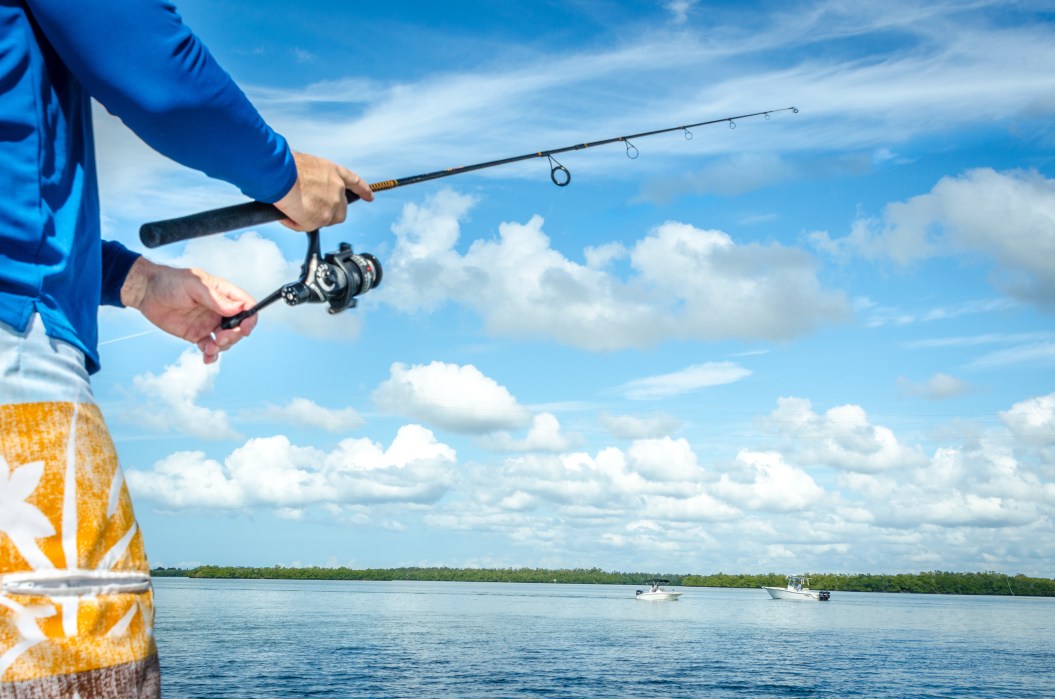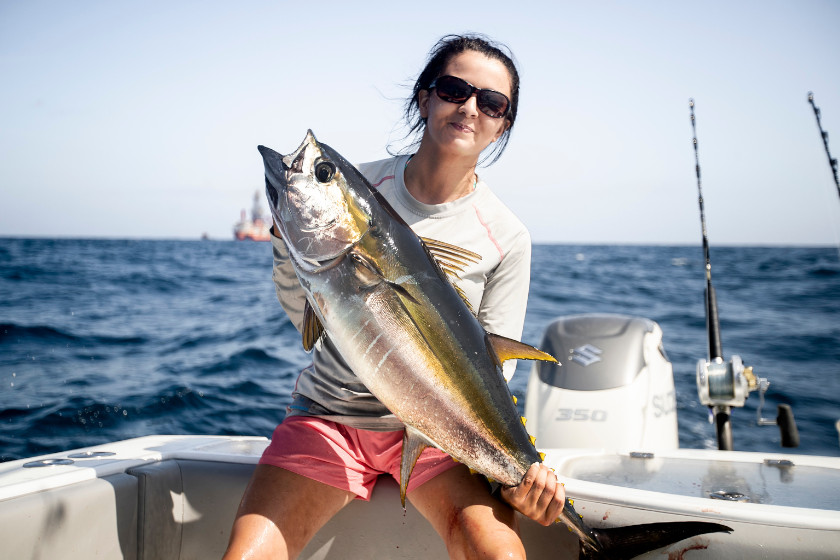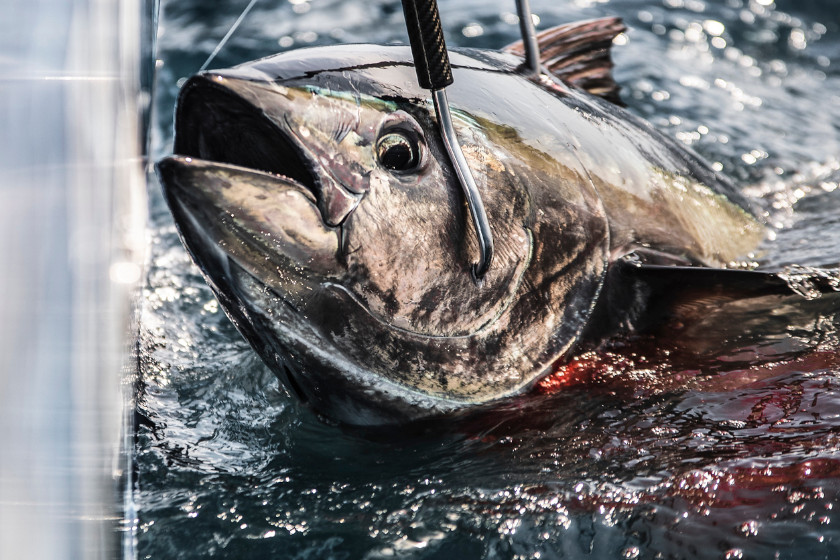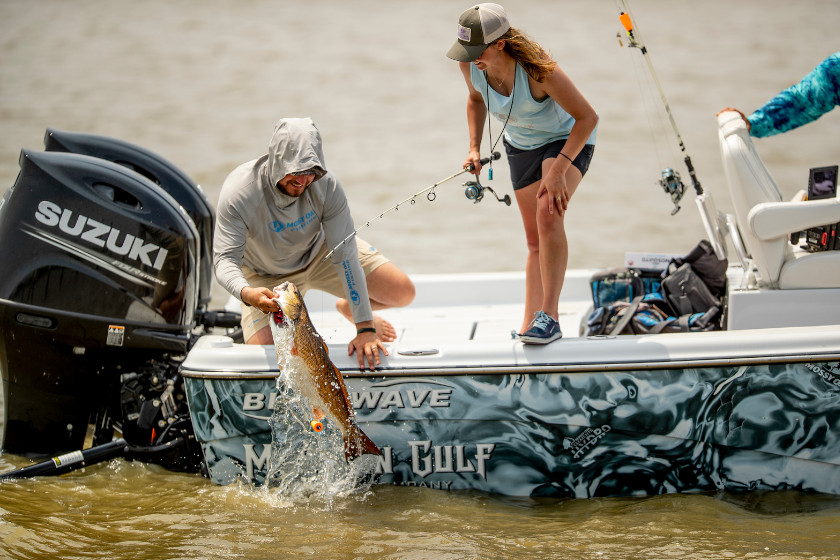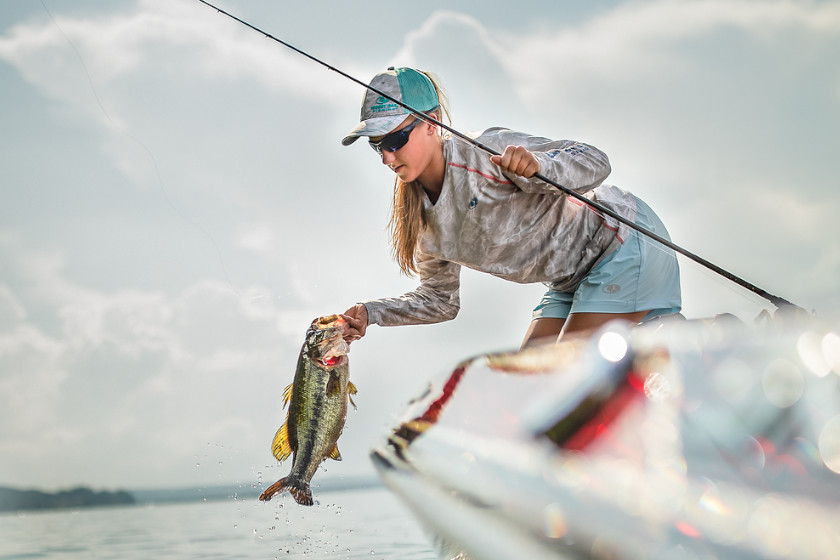Florida is one of those rare angler's paradises where all your fishing dreams can come true. Very few places offer the combination of fresh and saltwater fishing opportunities that the Sunshine State does. With so many bucket-list catches to be had, it's hard to choose between the snook and redfish of the mangroves, the mahi mahi and tuna offshore, or pot-bellied largemouth bass in the large inland lakes.
We leave the choice of what species you'd like to target up to you and handle some of the backend logistics instead. Before you head out on your once-in-a-lifetime Floridian fishing trip, you'll need one key item: a Flordia fishing license.
Here, we'll break down the different types of recreational licenses, their costs, and how long they're good for so you can purchase the proper tag for your next angling adventure.
Where to Buy a Florida Fishing License
The FWC makes it simple to buy licenses directly through their website, using a credit card. The site is quick and easy to use, and you can print out your license and keep it in your wallet in case a conservation officer asks to see it.
You can also buy from any of the state's license agents. Most bait and tackle shops on the coast offer them for sale, and you can also purchase them from box stores such as Walmart. If you want a resident license, make sure you bring your Florida driver's license or other identification card that shows you're a resident.
How Much is a Florida Fishing License?
Florida fishing license prices depend on how long the license is valid for, and the resident status of the license holder. Like most states, Florida residents are going to pay less than non-residents for the privilege of taking advantage of the state's many angling opportunities. Florida fishing licenses are also divided between salt- and freshwater licenses, though the prices are the same for either. Wether you're a resident or not, Florida is still one of the more affordable states to fish in.
The Florida Fish and Wildlife Conservation Commission (FWC) breaks down the basic fishing licenses as follows:
Now, we know plenty of anglers will want to target both salt- and freshwater fish on their Florida fishing trip. Thankfully, if you're a Florida resident, the state has you covered, with a combo salt- and freshwater license. It's unfortunately limited to an annual license; as of 2023, the FWC does not offer these combo licenses for a five-year time frame. If you're a resident, you can also tag on a hunting license for a reduced price to go with it, giving you an all-in-one license. There is also a no-cost saltwater shoreline fishing license for anyone sticking to casting from the beach, fishing ponds, or fishing piers. However, this is onshore only and you'll need to purchase another license if you are fishing from a boat.
Florida Fishing License Discounts
The licenses listed above are the most basic packages.
Hunting
Florida also offers some great one-year combination packages for people who want to do a lot of hunting and fishing. These licenses are for residents only, however. Note that the hunting combos require proof of hunter education classes since they include a hunting license.
- Annual resident sportsman's (freshwater fishing, hunting, wildlife management area, archery, muzzleloading gun, crossbow, deer, turkey, and waterfowl): $80.50
Sportsman
The sportsman's license is a good deal, but if you want to fish in the salt, you'll need to step it up to the gold sportsman's license, which also includes snook and lobster permits. And, there's a five-year option.
- Gold sportsman's license: $100
- Gold sportsman's license - five-year: $494.00
Seniors
For senior discounts, Florida has the silver sportsman's license, which is limited to residents aged 64 or older. It doesn't include the saltwater fishing license or snook and lobster permits, but it has everything else mentioned in the sportsman's license. And it's offered in a five-year package.
- Annual resident silver sportsman's: $13.50
- Five-year resident silver sportsman's: $61.50
Youth
Then there are the youth licenses. According to the FWC, anyone under the age of 16 does not need a fishing license in Florida. But they will still need to abide by the same fishing regulations as the adults. The FWC also notes that a conservation officer may still ask for proof of age. In that case, it's not a bad idea to buy an optional youth license. These are only for ages 8 to 15 and are valid until a child reaches 17, so you only need to buy them once.
- Resident youth saltwater: $17
- Resident youth freshwater: $17
- Resident youth gold sportsman's license: $100
Military
Like most states, Florida also offers fantastic license deals for active military. Service members can get a steeply discounted military gold sportsman's license, good for saltwater, freshwater, wildlife management area, archery, deer, turkey, muzzleloading, waterfowl, snook, and lobster. It's an annual license, and the license fee is only $20.
The only catch is that you'll need to visit a Florida county tax collector's office with your current military ID and proof of residence to purchase. Even with that extra step, though, if you're in the armed forces and living in Florida, this license is a no-brainer. Even if you aren't planning to participate in all of those activities, you're covered for almost anything for next to nothing, cost-wise.
Saltwater Additions
Florida licenses can get a bit confusing with the saltwater add-ons. Some of these, such as the state reef fish angler designation, don't cost anything. But they are required if you're fishing from a private vessel for reef fish such as snapper, grouper, amberjack, or hogfish. There is also a no-cost shore-based shark fishing permit that's required in addition to a saltwater license for all anglers ages 16 and over trying to take sharks from the shore. That includes fishing from piers, bridges, or jetties. Here are the other species-specific tags required and the costs involved.
- Snook annual (for attempting to target or take snook): $10
- Snook five-year: $50
- Spiny lobster annual: $5.00
- Spiny lobster resident five-year: $25.00
- Tarpon tags annual: $51.50
Note that most of these tags are "no exemptions," which means a conservation officer is likely going to give you a ticket for not having one even if you plead ignorance. Tarpon tags are only available at a tax collector's office.
Anyone wanting to target blue or stone crabs must also register their traps online. There's no cost to do this, but a valid saltwater fishing license is required.
Can I Fish Without a License in Florida?
All residents and non-residents are required to have a license in their possession while angling in Florida. There are a few exceptions for license-free days, listed below.
Freshwater Days
- First Saturday and Sunday in April
- Second Saturday and Sunday in June
Saltwater Days
- First Saturday and Sunday in June
- First Saturday in September
- Saturday after Thanksgiving
Note that all other regulations apply while fishing on these days, and you can harvest spiny lobster, snook, crabs, and scallops on these days with no license required.
And that's all there is to Florida's fishing license requirements. The only thing to do now is decide what license you'll need, then get out there. The big ones are just waiting to be caught!
READ MORE: How to Plan a Florida Fishing Trip (and Hopefully Avoid the Tourists)
